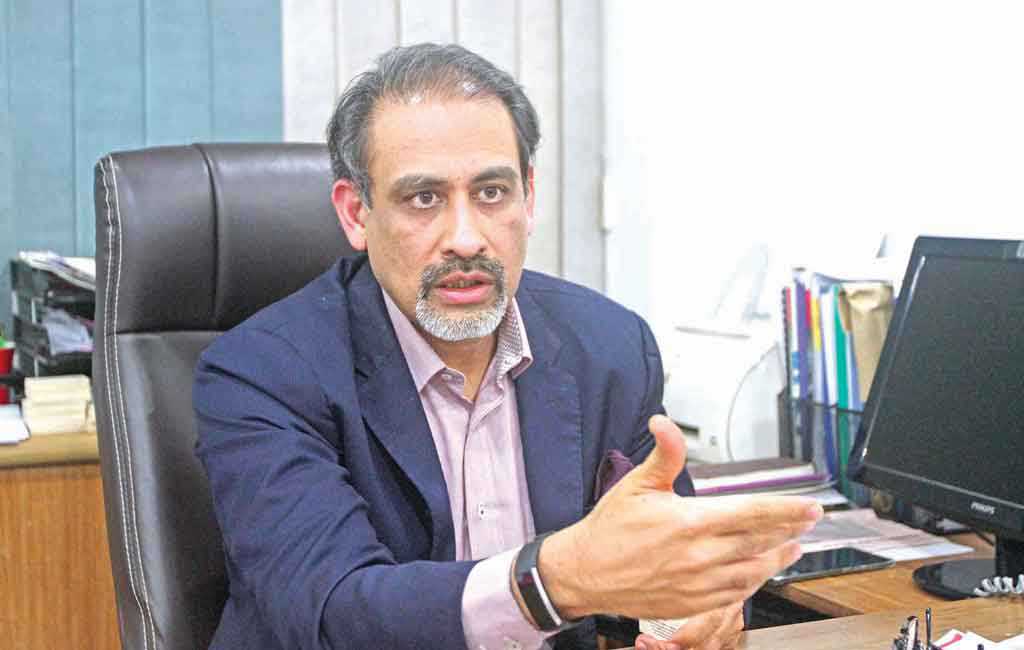Abul Kasem Khan: Biggest challenge in our economy is employment generation

Immediate-past president of Dhaka Chamber of Commerce and Industry (DCCI) has remarked that employment generation is very crucial for Bangladesh economy. In an exclusive interview with the Dhaka Tribune's Ibrahim Hossain Ovi, he opines that the government has to engage the private sector in policy design, formulation and implementation, in order to create more jobs in a sustainable way
Do you think US-China trade war will benefit Bangladesh?
As the US-China trade war continues, there will be a spillover effect on other Asian countries in terms of investments. As a South Asian country, Bangladesh has a great opportunity to grab investments from countries that are relocating their businesses from China.
Bangladesh can take the opportunity in backward linkage industries, as the country has strong forward industries, such as the apparel sector, as well as the leather and textile industries.
To this end, Bangladesh has to improve its ease of doing business index by undertaking massive reforms in some of the key infrastructural areas.
If Bangladesh can improve in those areas, the FDI (foreign direct investment)will rise significantly.
Do you think that special economic zones (SEZs) will be able to attract investment?
The government’s initiative of establishing 100 SEZs can be a game changer for the economy. But there are challenges, as there are also SEZs in other countries where investors can invest. To draw the attention of investors, the government has to set an example by completing at least 10 SEZs on a priority basis.
On top of that, the connectivity of the SEZs with the land and sea ports should be well-designed so that communication can be easier.
The government policy regarding investment in SEZs should also be flexible and predictable.
How can the business community contribute in achieving‘developing country’status by 2024?
Right now, the biggest challenge for Bangladesh is to create jobs for the unemployed youths. As of now, 2.5 million people are entering the job market every year.
The private sector has to take initiatives in employment generation. While making employment generation sustainable, the government has to engage leading private sector businessmen in policy design, formulation and implementation.
Though there is dialogue between the government and the business community before any policy is implemented, it is not effective. There must be continuous dialogues between the two parties, so that the demands of the business community are taken into consideration.
How can we attract foreign direct investment (FDI)?
Investment is driven on investors’ confidence level. That level increases when there is a predictable and sustainable policy support for businesses.
In attracting investments from home and abroad, the government has to give the business community confidence by ensuring predictability in business environment, and continuation of policies for making investment decision.
An investor will invest when he or she gets sustainable policies and a stable business environment.
In addition, the government must address three issues - infrastructural development, skill development and institutional reforms - to expedite delivery of service with quality.
What about ensuring fund flow for investment?
There is no alternative strong source of funds for doing business except banks and non-banking financial institutions.
Sharp rise in non-performing loans (NPL) has adversely impacted the fund flow in the private sector. It also increased the cost of funds as the banks have to keep provisions against bad loans, which caused rise in interest rates.
So,in increasing the fund flow, we need a stable and disciplined banking sector. For that, formation of a banking commission is a must. In reducing NPL, Bangladesh Bank has to take action against banks that are unable to bring the defaulters to book.
Additionally, the government, along with the stock market regulators, has to make the stock market vibrant to make it a great source of funds for business.
How can we promote the country’s SME(small or medium-sized enterprise)sector?
SME is termed as the backbone of an industry, but in Bangladesh it is not fully functional in contributing to the economy.
Getting credit facilities from financial institutions remaina challenge for the country’s SME sector. As a result, the opportunity of this sector in creating entrepreneurs,as well ascontributing to the growth of industrialization, is yet to be tapped.
For the development of SME sector, the government has to change financing strategy, while banks have to change their mindset towards small entrepreneurs.
On top of that, policymakers should create opportunities to raise funds from the stock market to expand businesses.
What about diversification of export products?
The RMG (ready-made garment)model can be followed in diversifying export-oriented goods. Today’s RMG sector is the success story of government policy support.
The government has to identify potential and emerging export-oriented industries, which can contribute to the country’s export figures.
Based on the sectors’ prospectus, the government has to include incentives and formulate policies to make space for growth.
I think, pharmaceuticals, agro-processing industry, ICT, flower, ship-building and light engineering can be new emerging sectors.
The business community, as well as the government, will have to move for exploration of new export destinations.
Source: https://www.dhakatribune.com